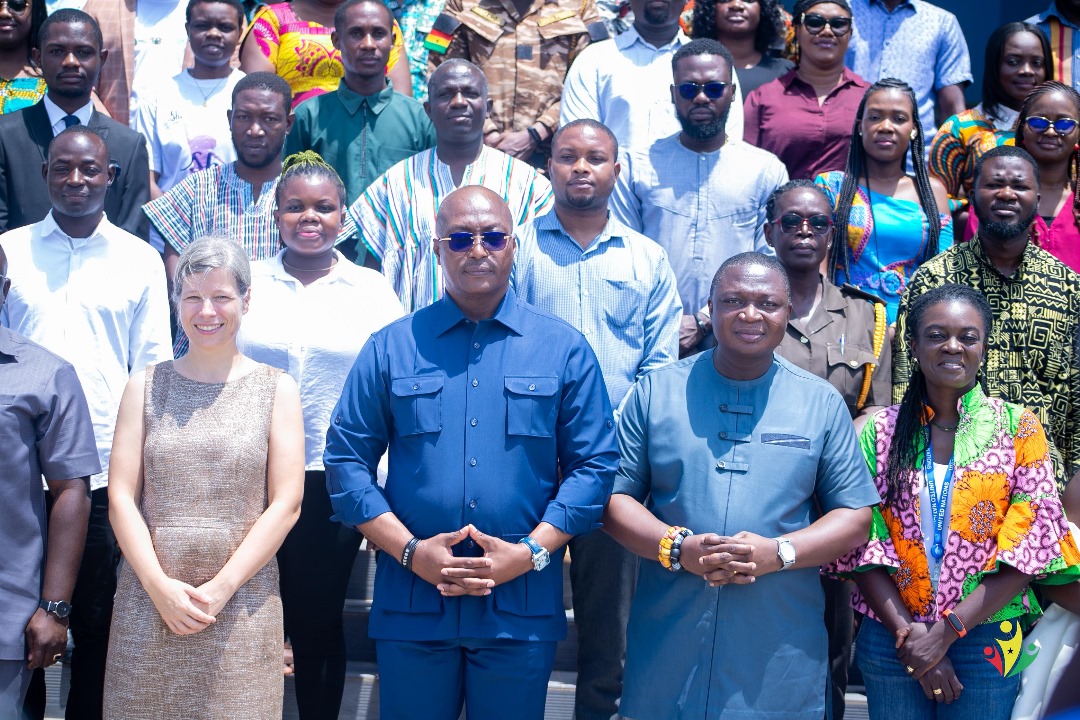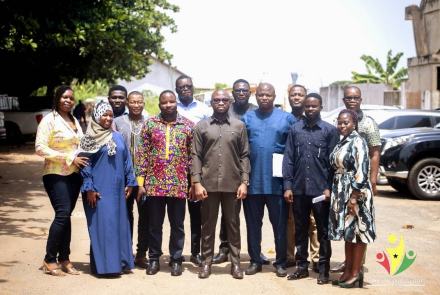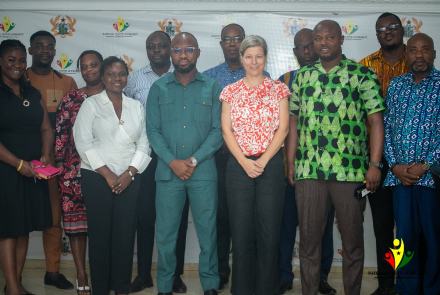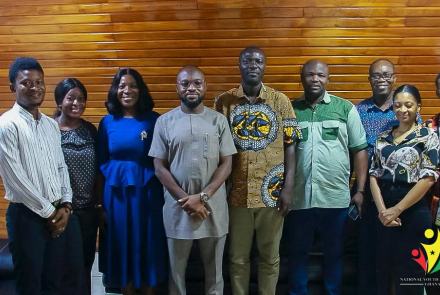Roadmap for Ghana's Youth, Peace, and Security Action Plan Discussed in Accra..
Ghana is in the process of developing its National Action Plan (NAP) as part of its commitment to the United Nations Security Council Resolution 2250, which calls for meaningful youth involvement in peace and security efforts.
The meeting, held in Accra, was organized by the National Youth Authority (NYA) in partnership with the Kofi Annan International Peacekeeping Training Centre (KAIPTC).
The NAP aims to empower young people as essential contributors to peacebuilding, conflict resolution, and creating a resilient future for Ghana.
The Deputy Chief Executive Officer of the National Youth Authority (NYA), Mr. Nelson Owusu Ansah, in his remarks, noted that while Ghana has enjoyed a degree of stability and security, it is easy to overlook how fragile this peace can be.
"It is crucial to acknowledge the importance of peace and understand that preserving security requires a shared commitment from all," he stated.
He urged stakeholders to come together in developing a National Action Plan that empowers Ghanaian youth to take an active role in peacebuilding and conflict resolution.
"With youth leading this transformative process, Ghana is well-positioned to cultivate a more peaceful and resilient future," Mr. Owusu Ansah added.
The UNFPA’s Representative, Madam Adjoa Nyanteng Yenyi, commended the Government for its efforts to involve young people in promoting peace and security through the development of a National Youth, Peace, and Security (YPS) Action Plan
Madam Yenyi acknowledged the significant role of key ministries, including the Ministry of Youth and Sports and the Ministry of Gender, Children, and Social Protection, as well as the National Peace Council, for their commitment to the process.
She emphasized the need for collaboration among stakeholders, including youth groups, government agencies, and international partners, to ensure the plan reflects the needs and aspirations of young people across Ghana.
Madam Yenyi noted that the roadmap will allow for consultations, data gathering, and stakeholder engagement across the country.
"This process will ensure that youth from both urban and rural areas, as well as those from different socio-economic backgrounds, have a say in shaping the action plan," she said
UNFPA, she added, will continue to support the government and its partners to facilitate an open, transparent process.
“The success of the National Action Plan depends on the collaboration and shared responsibility of all of us here today,” she said.
The Deputy Commandant of the Kofi Annan International Peacekeeping Training Centre (KAIPTC), David Annetey Akrong called for greater efforts to involve young people in peace and security initiatives in Ghana and across Africa.
“Young people are not just beneficiaries of peace; they are agents of change, driving innovation and playing an active role in peacebuilding,” he stated.
He stressed the importance of the National Action Plan (NAP) as a tool to harness the potential of the youth, ensuring their involvement in decision-making processes at all levels.
The Deputy Commandant expressed his gratitude to the Technical Working Group members for their hard work in laying the foundation for the NAP’s development. He acknowledged the far-reaching impacts their efforts will have on peace and security in Ghana and beyond.
The workshop brought together key stakeholders, including government representatives, civil society organizations, youth groups, development partners, and the security sector. This diverse engagement, he noted, is crucial for ensuring that the NAP is comprehensive and actionable.
As the event progressed, he called for collaboration, inclusivity, and commitment in the continued development of the NAP, stating that it serves as a "blueprint for sustainable peace."
share on:







